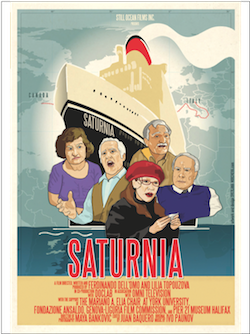 Three Day Road by Joseph Boyden (Penguin Canada, 2005) 384 pages
Three Day Road by Joseph Boyden (Penguin Canada, 2005) 384 pagesI saw Joseph Boyden read about a month ago at OISE/UT. He's a great reader, really very elegant and understated in style. I picked up this book at that reading. He also wrote Through Black Spruce
which won the Giller Prize in 2008.
Boyden tells the story of two boys, Xavier Bird and Elijah Whiskeyjack (the latter name is a corruption of an Indian name Weesageechak), two Cree boys from northern Ontario who go to fight as snipers in WWI. The story is loosely inspired, in part, by the life of Francis Pegahmagabow, a Cree, a famous war hero and exceptional sniper in WWI.
Only one makes it back to Canada after the war and when he returns he is a damaged, haunted young man. Xavier, the shyer, less extroverted one who struggles with English, survives the Great War only to return without a leg and hooked on morphine. He is met by his Auntie Niska, his mother's sister, a Cree living in the bush, living the old ways.
Xavier drifts in and out of consciousness in a morphine daze and allows Niska to care for him as they travel through the bush back to her home in the wild by canoe. He relives the military battle at Ypres, France where he and Elijah, the seemingly braver one, the more resourceful one, became expert snipers. What a horrible realization that it is Xavier who returns addicted to morphine.
Early in the novel, Xavier says: "I will tell the elders the many strange things that I have seen ..." which gives us a glimpse of the trials ahead. The book is meticulously researched - and often graphically described - which only increases its power. One feels the cold, the lice infested clothes, the mud, the filthiness, the blood and savagery of trench warfare, the tension and fear before battle, the rivalries, hatreds and mistakes amongst the men which inevitably occur in battle and even the deliberate murders which occur of dreaded superiors or rivals in the field of battle.
The boys board a train to enlist - forced to sit in a back car because they are Indian which no one seems to question, not even themselves. They travel by boat to England and they join the war effort in France where Xavier, nicknamed X, feels like a "brown ghost" with the wemistikoshiw (whites) because his English is not good and he recedes into the background.
The boys watch comrades die, kill "Fritz", the German enemy, and wrestle with death daily. They face lice, hunger, poison gas, racism, trench foot, rotting and destroyed bodies, rats in the battlefield where "rumors fall like rain". In battle, where Xavier and Elijah are teamed up to eliminate an expert German sniper who is picking off Canadian soldiers, Xavier cuts the stripes off the uniform of the slain man as a trophy. That struck me forcibly ... did that allude to the ancient tradition of cutting the enemy's scalp - how deep rooted the desire to have tangible proof of one's power to kill. More on that in a moment ...
There are so many powerful scenes here: Elijah straddling the base of an enormous statue of the Madonna, left exposed by shelling in a destroyed church. Elijah scalping a fallen soldier. Xavier being seduced/seducing the French girl Lisette. Niska's lover betraying her in the church. Elijah landing on an enemy dugout, getting stuck in the dugout and then massacring the surprised German soldiers one by one. The teenage boy soldier shot by the Canadian military for falling asleep at his station and endangering them all. Xavier putting the horses out of their misery on the ship in a terrifying and unexpected way. Elijah going through the pockets of the dead Canadian soldiers before he buries them and cataloguing their possessions one by one in plastic bags. Xavier bayoneting soldier after solider and struggling to remove the bayonet. Elijah's last day with Xavier ...
One minute Gilberto, a fellow soldier, is smiling at Xavier, the next second "the smile on his face blooms into a red flower".
When Xavier and Elijah meet the real Francis Pegahmagabow (nicknamed Peggy) in the book, Elijah's first impulse is to want to kill the man because his sniper kills outshine Elijah's.
X deserts the army for one day to return to Lisette only to find her with another man – X risks court-martial when he returns and is ordered to speak to the Sgt. to explain his absence. Elijah insists that he come along to “translate” as X’s English is so poor but he does so only to protect X. Hilariously, X profanely insults Elijah and the senior officer that Elijah translates into a more acceptable response in order to save him.
But despite some of his kindnesses to X, Elijah descends into his addiction, or his madness, and becomes progressively more unstable and violent. X realizes that Elijah has come to love killing, has gone mad in the process of becoming so proficient in it. Xavier withdraws because he is frightened and increasingly losing his hearing. Soon we will discover what becomes of Elijah.
Niska, in trying to save her nephew when he returns from the war, tells him stories of her life, of being forcibly removed to a residential school by nuns to rid her of her "heathen" ways and having her long hair cut off and how she rebels, of being rescued by her mother and escaping into the bush, of losing her virginity to her "Frenchman" (in a couple of pretty steamy scenes, mind you) and worse, much worse, as things end badly for Niska's lover. Her mother's death. Her loneliness. Many of her relations die or are scattered to the winds by starvation which drive them into the hands of the wemistikoshiw who wish to "civilize" them.
This is not the first time that Niska saves Xavier. When Niska first finds her nephew Xavier in the residential school (where he has been left by Niska’s sister who cannot care for him) she finds Xavier paddling in a canoe with a nun who is fishing. She sees that when X “misbehaves” the nun strikes him with a paddle on the head. Niska is so disturbed by the sight that the next time she returns to rescue X she urges X to hop into her canoe, the nun topples over into the water and she smacks the nun with a paddle for good measure.
Niska is a windigo killer as was her father before he was imprisoned by the wemistikoshiw and died in jail. Their role in the tribe is to kill those who have gone mad and threaten the safety of the tribe.
Slowly we learn of Xavier's fate during the war ... how he lost his leg, why Elijah disappeared and why Xavier returned with Elijah's name. An amazing conclusion ... so powerful and satisfying emotionally.
One thing niggles at me in terms of the plot. Niska is telling these stories to Xavier (which are fascinating and mesmerizingly told) - and these stories are sometimes sexually graphic, humiliating and violent. Would an aunt share this with a nephew in this fashion? I know she is trying to lull him out of his state of shock or depression but it seems an unlikely scenario. I could accept this portion of the novel if Niska was thinking of these episodes as she cares for Xavier, rather than speaking them aloud to him.
This last image that I will relate was the most telling in the novel I think. Elijah's killing the nest of swallows at Breech’s order serves as a perfect metaphor for the conflict between Indian and wemisitikoshiw world. Xavier is confined for medical examination (Elijah has lied and said X is disoriented and nauseous after battle to cover for his unauthorized trip to find Lisette).
The hospital room’s only other occupant is a swallow which chirps loudly and when Breech, a senior officer, is disturbed by its twittering he orders X to knock the nest down which he refuses to do. Elijah does it instead. Here is Elijah (whom I always picture as the actor Adam Beach) willing to play the game to get ahead, winning the honors, accepting the glory. The Indian boys see the scene as “natural”, the presence of the swallow is not disturbing or unnatural, the white commander sees it as a sign of disorder and chaos which must be tamed or destroyed – not unlike the wemisitikoshiw’s intrusion into the Indian’s world.
An absolutely phenomenal book.










No comments:
Post a Comment